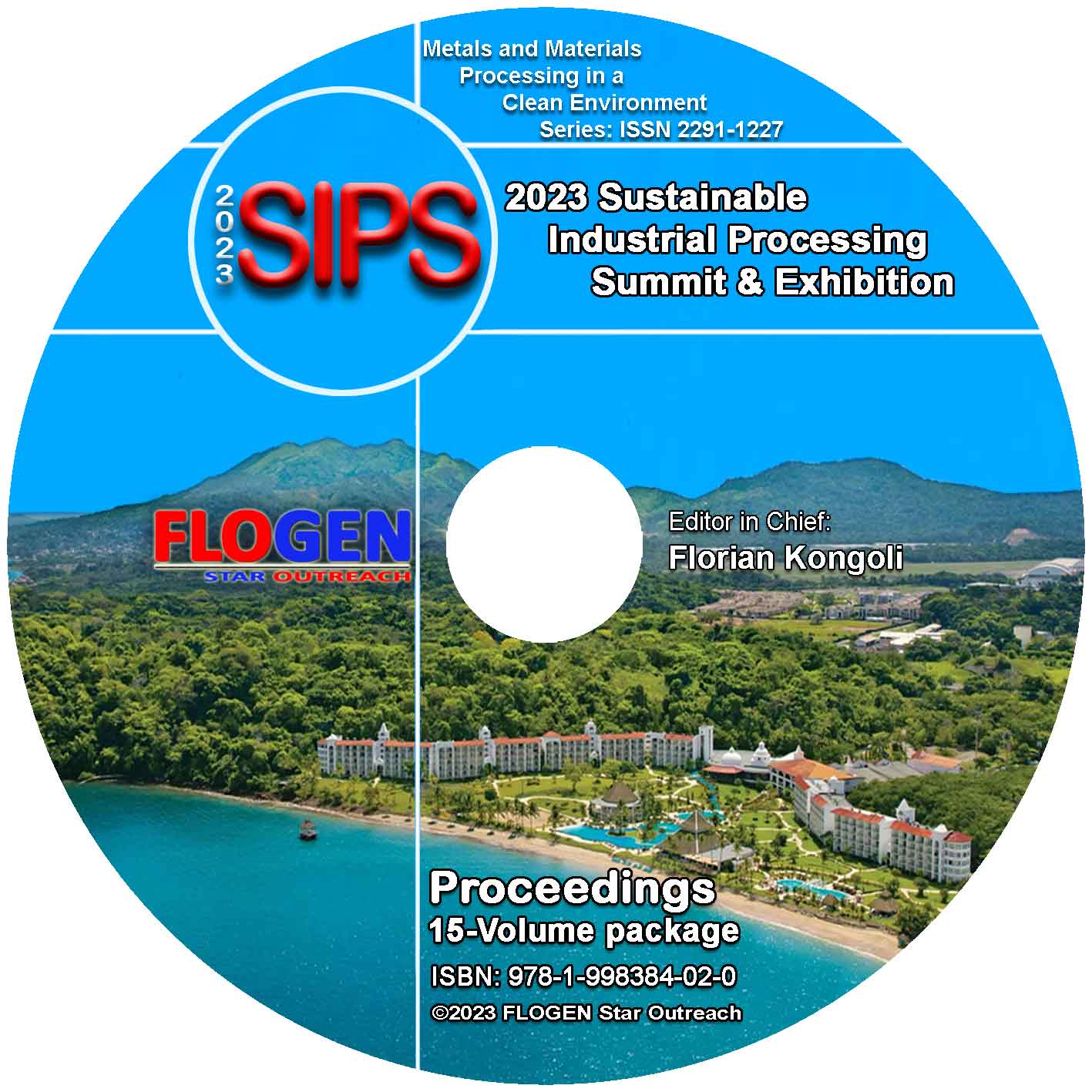2023-Sustainable Industrial Processing Summit
SIPS2023 Volume 10. Torem Intl. Symp/ Mineral Processing
| Editors: | F. Kongoli, G. N. Anastassakis, A. Abhilash, H. R. Kota, A. G. Merma, E. Souza, C.H. Sampaio, R. Souza, M.M. Vellasco, F. Zeballos, J. Sokolovic |
| Publisher: | Flogen Star OUTREACH |
| Publication Year: | 2023 |
| Pages: | 142 pages |
| ISBN: | 978-1-989820-90-2 (CD) |
| ISSN: | 2291-1227 (Metals and Materials Processing in a Clean Environment Series) |

CD shopping page
UN PACKING THE NEXUS BETWEEN HYDROLOGICAL CLIMATE CHANGE AND RURAL EMIGRATION IN CAMEROON
Asongacap David Nvenache1; Malafa Daniel Ikome2; Roland Atembe3;1UNIVERSITY OF BUEA, Buea, Cameroon; 2LEROYETTE INSTITUTE FOR SUSTAINABLE DEVELOPMENT, Kumba II Meme, Cameroon; 3UNIVERSITY OF INNSBRUCK, Innsbruck, Cameroon;
Type of Paper: Regular
Id Paper: 335
Topic: 5
Abstract:
Over the past decade, there have been increasing concerns about climate change[1]. This phenomenon affects various aspects of society. In this paper, we examine the nexus between climate change, sustainable agricultural practices, and rural migration in Africa. This area of research is particularly important because the majority of the population living in rural areas in Africa depend on local agriculture for livelihood concerns.[2] The trajectory of climate change and environmental degradation is having a drastic impact on food security at the local and regional level, and this is precipitating rural exodus across the continent. We focus on how hydrological climate conditions such as water shortage, flooding, and reduced rainfall hinder agricultural productivity, consequently inducing food insecurity, forced rural emigration, inter-ethnic conflicts, and internal displacement. Findings shows that this trend further threatens rural population retention and sustainable development. To mitigate these challenges, we propose policy recommendations based on sustainable land-use and indigenous farming practices. This paper aims at developing a strategic plan for utilizing bio-waste for agricultural land re-generation. Also, we aim at developing a strategic adaptation mechanism for communities specifically impacted by hydrological hazards. This paper relevant because the outcome of our selected case studies can be adopted by other communities facing similar climate and migration challenges.Â
Keywords:
Climate Change; Rural Migration; Sustainability; Agriculture;References:
[1] 1] Zeng, Z., Y. Wang and C. Wu (2007), «Environmental dynamical control of tropical cyclone intensity: An observational study" Monthly Weather Review, vol. 135, N° 1.[2] [2] AfDN (African Development Bank) and Others (2007), Poverty and climate change: Reducing the Vulnerability of the poor through adaptation, Word Bank.